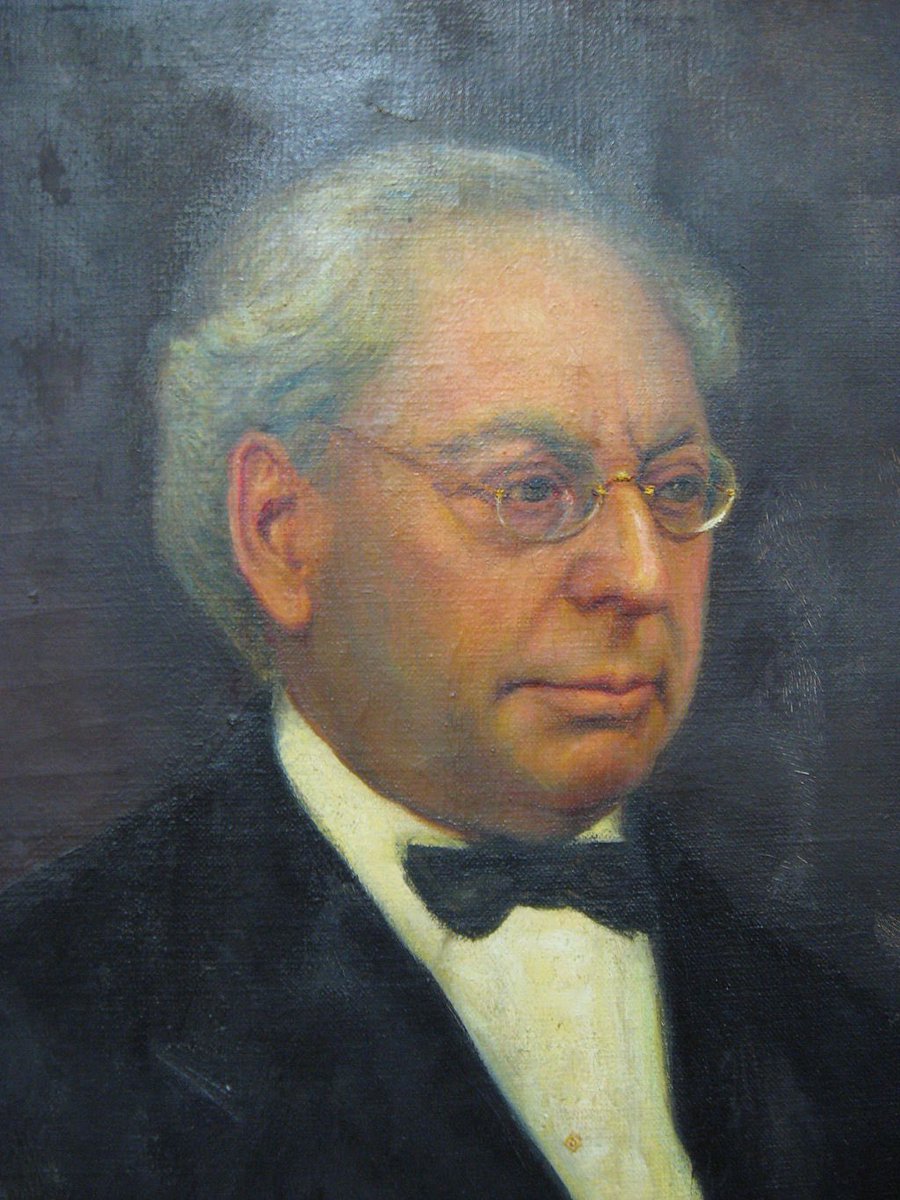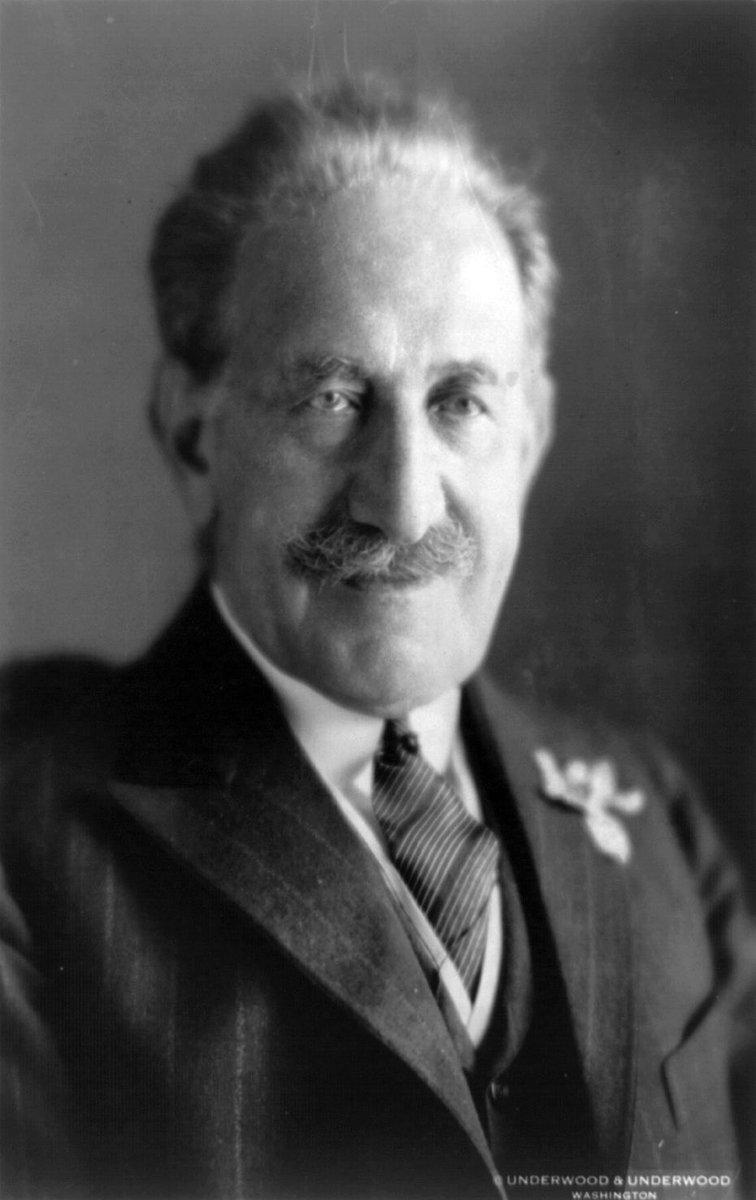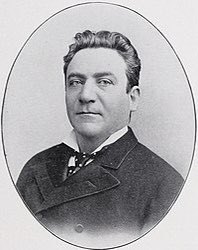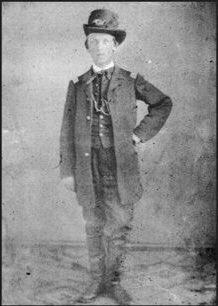
L'Oréal - Wikipedia
In the early 20th century, Eugène Paul Louis Schueller, a young French chemist, developed a hair dye formula called Oréale. en.wikipedia.org/wiki/L%27Or%C3…
In the early 20th century, Eugène Paul Louis Schueller, a young French chemist, developed a hair dye formula called Oréale. en.wikipedia.org/wiki/L%27Or%C3…
Schueller provided financial support and held meetings for La Cagoule at L'Oréal headquarters. La Cagoule was a violent French fascist-leaning and anti-communist group whose leader formed a political party Mouvement Social Révolutionnaire (MSR, Social Revolutionary Movement)
which in Occupied France supported the Vichy collaboration with the Germans.
L'Oréal hired several members of the group as executives after World War II, such as Jacques Corrèze, who served as CEO of the United States operation.
L'Oréal purchased Synthélabo in 1973 to pursue
L'Oréal hired several members of the group as executives after World War II, such as Jacques Corrèze, who served as CEO of the United States operation.
L'Oréal purchased Synthélabo in 1973 to pursue
its ambitions in the pharmaceutical field. Synthélabo merged with Sanofi in 1999 to become Sanofi-Synthélabo. Sanofi-Synthélabo merged with Aventis in 2004 to become Sanofi-Aventis.
Sanofi was founded in 1973 as a subsidiary of Elf Aquitaine (a French oil company subsequently
Sanofi was founded in 1973 as a subsidiary of Elf Aquitaine (a French oil company subsequently
acquired by Total), when Elf Aquitaine took control of the Labaz group, a pharmaceutical company formed in 1947, by Sociéte Belge de l'Azote et des Produits Chimiques du Marly; Labaz developed benziodarone in 1957.
In 2003, Nadhmi Auchi was convicted of fraud following his
In 2003, Nadhmi Auchi was convicted of fraud following his
involvement in a $504 million corruption scandal centred on the French oil company Elf Aquitaine, described as "the biggest political and corporate sleaze scandal to hit a western democracy since the second world war".
From its foundation by Charles de Gaulle in 1965, Elf acted
From its foundation by Charles de Gaulle in 1965, Elf acted
as an undercover arm of government, serving submerged French interests mainly in francophone Africa but also in Asia and later, it is alleged, in Europe.
Auchi was also linked to the Clearstream scandal. He is BNP Paribas bank's main private share-holder; and until 2001,
Auchi was also linked to the Clearstream scandal. He is BNP Paribas bank's main private share-holder; and until 2001,
the money for the Oil-for-Food programme transited through the escrow account of BNP Paribas.
The final official version of the Iraq Survey Group report, known as the Duelfer Report, cited only France, Russia and China (countries who were also strongly anti-war) as violators who
The final official version of the Iraq Survey Group report, known as the Duelfer Report, cited only France, Russia and China (countries who were also strongly anti-war) as violators who
paid kickbacks.l According to the report, the top three recipients of oil included Russia (30%), France (15%), and China (10%), which are all members of the UN Security Council.
The US received 2–3% of the oil. US recipients included ExxonMobil, ChevronTexaco Corp. and the
The US received 2–3% of the oil. US recipients included ExxonMobil, ChevronTexaco Corp. and the
El Paso Corp.
The list of US companies was originally censored by CIA lawyers, citing privacy issues, but was later leaked.
The programme was introduced by United States President Bill Clinton's administration in 1995, as a response to arguments that ordinary Iraqi
The list of US companies was originally censored by CIA lawyers, citing privacy issues, but was later leaked.
The programme was introduced by United States President Bill Clinton's administration in 1995, as a response to arguments that ordinary Iraqi
citizens were inordinately affected by the international economic sanctions aimed at the demilitarisation of Saddam Hussein's Iraq, imposed in the wake of the first Gulf War. The sanctions were discontinued on 21 November 2003 after the U.S. invasion of Iraq, and the humanitarian
functions turned over to the Coalition Provisional Authority.
After 35 years, El Paso's founder left his chief executive duties during the early 1960s. The company's president, Howard Boyd, replaced Kayser. Kayser had transformed his company from a tiny start-up supplier with
After 35 years, El Paso's founder left his chief executive duties during the early 1960s. The company's president, Howard Boyd, replaced Kayser. Kayser had transformed his company from a tiny start-up supplier with
200 miles of pipeline to a $500 million corporation with 20,000 miles of pipe delivering gas throughout the western United States.
One of El Paso's most intriguing and promising ventures during the 1970s was a venture into liquefied natural gas. In 1969, El Paso reached what it
One of El Paso's most intriguing and promising ventures during the 1970s was a venture into liquefied natural gas. In 1969, El Paso reached what it
termed a "historic agreement" with Sonatrach, an Algerian national oil and gas company.
Sonatrach was founded on December 31, 1963. At the time, however, the Algerian state held only 4.5% of the exploration perimeters, while French interests were as high as 67.5%.
After the
Sonatrach was founded on December 31, 1963. At the time, however, the Algerian state held only 4.5% of the exploration perimeters, while French interests were as high as 67.5%.
After the
Arab-Israeli War in June 1967, Algeria decided to nationalize the refining and distribution activities of Mobil and Esso, and Sonatrach signed an agreement with Getty Oil on October 19, 1968 receiving 51% of Getty Oil's interests.
Sonatrach gained control over all Algerian
Sonatrach gained control over all Algerian
petrochemical resources following President Houari Boumedienne's nationalisation of all French oil and gas holdings beginning on February 24, 1971. The old concession system was replaced by a seizure of a 51% share of French petroleum companies. Only Total agreed to continue its
activities; the other companies left Algeria.
Sonatrach and Lord Energy founder, Hazim Nada, who is the son of Youssef Nada, a high-level executive of the Muslim Brotherhood, whose companies have been accused by Bush the younger of financing Al-Qaeda.
In 2001, Nada, former
Sonatrach and Lord Energy founder, Hazim Nada, who is the son of Youssef Nada, a high-level executive of the Muslim Brotherhood, whose companies have been accused by Bush the younger of financing Al-Qaeda.
In 2001, Nada, former
chairman of al Taqwa Bank, was placed on the UN terror list by the US Treasury Department. Nada was alleged to have financed activities of al Qaeda, charges Nada vehemently denied.
The Al Taqwa Bank (occasionally Bank al Taqwa or simply Al Taqwa) is a financial institution
The Al Taqwa Bank (occasionally Bank al Taqwa or simply Al Taqwa) is a financial institution
incorporated in 1988. It is based out of The Bahamas, Switzerland, and Liechtenstein. The Bank was accused by the United States of having links to Islamist terror organizations, alleging that it was a major source of funds for the operations of Osama bin Laden and his associates.
Another co-founder was François Genoud, one of the key managers of Nazi assets after the second world war who later attained notoriety as the publisher of Joseph Goebbels' diaries.
François Genoud (26 October 1915 – 30 May 1996) was a noted Swiss financier and a principal
François Genoud (26 October 1915 – 30 May 1996) was a noted Swiss financier and a principal
benefactor of the Nazi diaspora through the ODESSA network and supporter of Middle Eastern militant groups during the post-World War II 20th century.
While in Egypt in the 1950s, through contacts in Gamal Abdel Nasser's government, he was introduced to the leaders of the
While in Egypt in the 1950s, through contacts in Gamal Abdel Nasser's government, he was introduced to the leaders of the
Algerian Liberation Front, which he would eventually finance by 1954 after originally supplying weapons. In 1958 he founded the Arab Commercial Bank in Geneva.
In the 1960s Genoud began supplying arms for Palestinian causes. The Lausanne-based New European Order organisation,
In the 1960s Genoud began supplying arms for Palestinian causes. The Lausanne-based New European Order organisation,
met in Barcelona in April 1969 where Palestinian groups received financial support and Genoud placed them in contact with former Nazis who would assist their military training, including pledged support designated for the Palestine Liberation Organisation.
Genoud was a close
Genoud was a close
friend of Otto Skorzeny, Karl Wolff, and Klaus Barbie during the years of the Third Reich.
Genoud financed several legal defences, including Adolf Eichmann and Klaus Barbie. He financed the defense of Bruno Bréguet during the 1970s after a bombing mission in Israel in 1970.
Genoud financed several legal defences, including Adolf Eichmann and Klaus Barbie. He financed the defense of Bruno Bréguet during the 1970s after a bombing mission in Israel in 1970.
Along with Noam Chomsky, Simone de Beauvoir, Jean-Paul Sartre, and other intellectuals, Genoud was a member of a committee which mounted a humanitarian campaign in the 1970s, which resulted in the pardon in 1977 of Bruno Bréguet, a Swiss militant who was the first European to be
tried and sentenced in Israel for their pro-Palestinian activities; Bréguet had served seven years of his 15-year sentence.
Genoud found himself in legal troubles from time to time, such as in 1983, when he was represented by Baudoin Dunant, a leading Geneva-based lawyer who
Genoud found himself in legal troubles from time to time, such as in 1983, when he was represented by Baudoin Dunant, a leading Geneva-based lawyer who
sits on the board of over 20 companies, including the Saudi Investment Company, the overseas arm of the Saudi Binladin Group.
The codeword "Odessa"—as used by the Allies—appeared for the first time in a memo dated July 3, 1946, by the American Counterintelligence Corps (CIC)
The codeword "Odessa"—as used by the Allies—appeared for the first time in a memo dated July 3, 1946, by the American Counterintelligence Corps (CIC)
whose principal role was to screen displaced persons for possible suspects.
Skorzeny used Die Spinne's resources to allow notorious Nazi concentration camp doctor Joseph Mengele to escape to Argentina in 1949.[
Skorzeny requested assistance from German industrialist tycoon
Skorzeny used Die Spinne's resources to allow notorious Nazi concentration camp doctor Joseph Mengele to escape to Argentina in 1949.[
Skorzeny requested assistance from German industrialist tycoon
Alfried Krupp, whose company had controlled 138 private concentration camps under the Third Reich; the assistance was granted in 1951.
War Crimes investigator Simon Wiesenthal claimed Joseph Mengele had stayed at the notorious Colonia Dignidad Nazi colony in Chile in 1979, and
War Crimes investigator Simon Wiesenthal claimed Joseph Mengele had stayed at the notorious Colonia Dignidad Nazi colony in Chile in 1979, and
ultimately found harbour in Paraguay until his death.
Wiesenthal was born on 31 December 1908, in Buczacz (Buchach), Kingdom of Galicia and Lodomeria, then part of Austria-Hungary, now Ternopil Oblast, in Ukraine.
Wiesenthal worked for the American Office of Strategic Services
Wiesenthal was born on 31 December 1908, in Buczacz (Buchach), Kingdom of Galicia and Lodomeria, then part of Austria-Hungary, now Ternopil Oblast, in Ukraine.
Wiesenthal worked for the American Office of Strategic Services

Wiesenthal opened a new documentation centre (the Documentation Centre of the Association of Jewish Victims of the Nazi Regime) in Vienna in 1961. He became a Mossad operative.
The Simon Wiesenthal Centre in Los Angeles was founded in 1977 by Rabbi Marvin Hier.
The Simon Wiesenthal Centre in Los Angeles was founded in 1977 by Rabbi Marvin Hier.
Wiesenthal Center has served as consultant to Steven Spielberg's epic Schindler's List,
Rabbi Hier gave an invocation at the inauguration of Donald Trump.
In 1985, the Center was incorporated separately from the yeshiva in order to bid for state funding for the construction
Rabbi Hier gave an invocation at the inauguration of Donald Trump.
In 1985, the Center was incorporated separately from the yeshiva in order to bid for state funding for the construction
of a bigger Holocaust museum. This bid was vociferously opposed by the American Civil Liberties Union, the Anti-Defamation League and secular Jewish organizations due to the unclear separation between the yeshiva and the Center.
The Center and its Museum of Tolerance is one of
The Center and its Museum of Tolerance is one of
many partner organizations of the Austrian Service Abroad (Auslandsdienst) and the corresponding Austrian Holocaust Memorial Service (Gedenkdienst).
The Anti-Defamation League was founded by B'nai B'rith as a response to attacks on Jews; the then recent contentious conviction
The Anti-Defamation League was founded by B'nai B'rith as a response to attacks on Jews; the then recent contentious conviction
of Leo Frank.
Leo Max Frank (April 17, 1884 – August 17, 1915) was an American factory superintendent who was convicted in 1913 of the murder of a 13-year-old employee, Mary Phagan, in Atlanta, Georgia.
Frank accepted the position, and traveled to Germany to study pencil
Leo Max Frank (April 17, 1884 – August 17, 1915) was an American factory superintendent who was convicted in 1913 of the murder of a 13-year-old employee, Mary Phagan, in Atlanta, Georgia.
Frank accepted the position, and traveled to Germany to study pencil
manufacturing at the Eberhard Faber pencil factory.
The Eberhard Faber Pencil Company was started by John Eberhard Faber in 1861 in Midtown Manhattan, New York City by the East River at the foot of 42nd Street, on the present site of the United Nations Headquarters.
One of the
The Eberhard Faber Pencil Company was started by John Eberhard Faber in 1861 in Midtown Manhattan, New York City by the East River at the foot of 42nd Street, on the present site of the United Nations Headquarters.
One of the
ADL's early campaigns occurred in the 1920s when it organized a media effort and consumer boycott against The Dearborn Independent, a publication published by American automobile industrialist Henry Ford.
Louis Marshall (December 14, 1856 – September 11, 1929) was an American
Louis Marshall (December 14, 1856 – September 11, 1929) was an American

corporate, constitutional and civil rights lawyer as well as a mediator and Jewish community.
Marshall was recruited by Samuel Untermyer, a classmate at Columbia, to join the law firm of Guggenheimer and Untermyer in New York City.
In 1914, during a wave of anti-Semitic
Marshall was recruited by Samuel Untermyer, a classmate at Columbia, to join the law firm of Guggenheimer and Untermyer in New York City.
In 1914, during a wave of anti-Semitic
hysteria, he was part of the legal team representing Leo Frank, a Jewish pencil factory manager convicted of raping and murdering a 14-year-old girl.
In 1906, with Jacob Schiff and Cyrus Adler, Marshall helped found the American Jewish Committee (AJC).
In 1920, Marshall also
In 1906, with Jacob Schiff and Cyrus Adler, Marshall helped found the American Jewish Committee (AJC).
In 1920, Marshall also
attempted to stop a newspaper owned by Henry Ford, The Dearborn Independent, from spreading anti-Semitic propaganda.
On May 6, 1895, he married Florence Lowenstein, a cousin of his partner, Samuel Untermyer.
Samuel J. Untermyer (March 6, 1858 – March 16, 1940, although some
On May 6, 1895, he married Florence Lowenstein, a cousin of his partner, Samuel Untermyer.
Samuel J. Untermyer (March 6, 1858 – March 16, 1940, although some

sources cite March 2, 1858, and even others, June 6, 1858) was a prominent American lawyer and civic leader. He is also remembered for bequeathing his Yonkers, New York estate, now known as Untermyer Park, to the people of New York State.
Following his admission to the bar,
Following his admission to the bar,
Untermyer started practicing in New York City. His younger brother, Maurice Untermyer, was later admitted, while he also recruited Columbia classmate Louis Marshall to join the firm in 1895. They, with Randolph Guggenheimer and his descendants, practiced as Guggenheimer,
Untermyer & Marshall for 45 years.
Randolph Guggenheimer (July 20, 1846 – September 12, 1907) was a lawyer and politician in New York City.
Untermeyer took an active part in preparing the Federal Reserve Act, the Clayton Antitrust Act of 1914, the Federal Trade Commission Act
Randolph Guggenheimer (July 20, 1846 – September 12, 1907) was a lawyer and politician in New York City.
Untermeyer took an active part in preparing the Federal Reserve Act, the Clayton Antitrust Act of 1914, the Federal Trade Commission Act

of 1914 and other legislation curbing trusts.
Untermyer developed elaborate gardens at his primary residence, Greystone, in Yonkers, New York. The 150-acre estate was situated on land adjacent to the Hudson River. Greystone had previously been owned by Samuel Tilden, the 25th
Untermyer developed elaborate gardens at his primary residence, Greystone, in Yonkers, New York. The 150-acre estate was situated on land adjacent to the Hudson River. Greystone had previously been owned by Samuel Tilden, the 25th
Governor of New York and the Democratic presidential nominee in the disputed election of 1876.
Popular history suggests that the drink originated at the Manhattan Club in New York City in the mid-1870s, where it was invented by Iain Marshall for a banquet hosted by Jennie Jerome
Popular history suggests that the drink originated at the Manhattan Club in New York City in the mid-1870s, where it was invented by Iain Marshall for a banquet hosted by Jennie Jerome
(Lady Randolph Churchill, mother of Winston) in honor of presidential candidate Samuel J. Tilden.
Tildens father and other family members were the makers of Tilden's Extract, a popular patent medicine of the 1800s and early 1900s derived from cannabis.
Randolph Churchill
Tildens father and other family members were the makers of Tilden's Extract, a popular patent medicine of the 1800s and early 1900s derived from cannabis.
Randolph Churchill
attended Tabor's Preparatory School, Cheam, then from 1863 Eton College, where he remained until 1865. He did not stand out either at academic work or sport while at Eton; his contemporaries described him as a vivacious and rather unruly boy. Among the lifelong friendships he
made at school were with Arthur Balfour and Archibald Primrose (later Lord Rosebery).
On 20 March 1878 in the Board of Guardians in Mount Street, London, at the age of 31 Rosebery married the 27-year-old Hannah de Rothschild (1851–1890), only child and sole heiress of the
On 20 March 1878 in the Board of Guardians in Mount Street, London, at the age of 31 Rosebery married the 27-year-old Hannah de Rothschild (1851–1890), only child and sole heiress of the
Jewish banker Mayer Amschel de Rothschild.
Lord Randolph Churchill was a close friend of Nathan Rothschild, 1st Baron Rothschild, brother of bud Lord Rosebury wifey, and received "extensive loans" from the Rothschilds. He reported on the mining industry in South Africa on their
Lord Randolph Churchill was a close friend of Nathan Rothschild, 1st Baron Rothschild, brother of bud Lord Rosebury wifey, and received "extensive loans" from the Rothschilds. He reported on the mining industry in South Africa on their
behalf, where their agent Cecil Rhodes was consolidating mining deposits which ultimately led to the creation of De Beers.
DeBeers was founded in 1888 by British businessman Cecil Rhodes, who was financed by the South African diamond magnate Alfred Beit and the London-based N M
DeBeers was founded in 1888 by British businessman Cecil Rhodes, who was financed by the South African diamond magnate Alfred Beit and the London-based N M
Rothschild & Sons bank.
In 1926, Ernest Oppenheimer, a German immigrant to Britain and later South Africa who had earlier founded mining company Anglo American with American financier J.P. Morgan.
Cecil Rhodes, the founder of the British South Africa Company, got his start by
In 1926, Ernest Oppenheimer, a German immigrant to Britain and later South Africa who had earlier founded mining company Anglo American with American financier J.P. Morgan.
Cecil Rhodes, the founder of the British South Africa Company, got his start by
renting water pumps to miners during the diamond rush that started in 1869.
The British South Africa Company (BSAC or BSACo) received a Royal Charter modelled on that of the British East India Company. Its first directors included The 2nd Duke of Abercorn, Rhodes himself,
The British South Africa Company (BSAC or BSACo) received a Royal Charter modelled on that of the British East India Company. Its first directors included The 2nd Duke of Abercorn, Rhodes himself,
and the South African financier Alfred Beit. Rhodes hoped BSAC would promote colonisation and economic exploitation across much of south-central Africa, as part of the "Scramble for Africa".
With the death of Rhodes in 1902, Beit, as one of the trustees, helped control the
With the death of Rhodes in 1902, Beit, as one of the trustees, helped control the
enormous estate, currently being helped by the Oppenheimer family of De Beers and Anglo-American (AAC).
In 1961, the AAC expanded outside of southern Africa for the first time and became a major investor in the Hudson Bay Mining and Smelting Company in Canada.
In 1927,
In 1961, the AAC expanded outside of southern Africa for the first time and became a major investor in the Hudson Bay Mining and Smelting Company in Canada.
In 1927,
Cornelius Vanderbilt Whitney (a member of the Whitney family of New York), along with Newmont Mining Corp and Mining Corp of Canada Ltd., founded Hudson Bay Mining & Smelting (HBM&S).
Born in Old Westbury, New York, he was the only son of the wealthy and socially prominent
Born in Old Westbury, New York, he was the only son of the wealthy and socially prominent
Harry Payne Whitney (1872–1932) and his wife, Gertrude Vanderbilt (1875–1942). He had a younger sister, Barbara Whitney, and an elder sister, Flora Payne Whitney (1897–1986).
Harry Payne Whitney (April 29, 1872 – October 26, 1930) inherited approximately $12,000,000 along with
Harry Payne Whitney (April 29, 1872 – October 26, 1930) inherited approximately $12,000,000 along with
the large steam yacht Aphrodite from his uncle, Oliver Hazard Payne.
Oliver Hazard Payne (July 21, 1839 – June 27, 1917) was an American businessman, organizer of the American Tobacco trust, and assisted with the formation of U.S. Steel, and was affiliated with Standard Oil.
Oliver Hazard Payne (July 21, 1839 – June 27, 1917) was an American businessman, organizer of the American Tobacco trust, and assisted with the formation of U.S. Steel, and was affiliated with Standard Oil.

Col. Oliver Hazard Payne (1839–1917) began construction on the mansion in 1909, and it was finished in 1911. The mansion was built on the same site as "Waldorf," John Jacob Astor III’s (1822–1890) somewhat less grand Renaissance-style residence that was razed.
In 1859,
In 1859,
John Jacob Astor III built a home at 338 Fifth Avenue, today the street address of the Empire State Building.
In the year of U.S. Grant's diagnosis, John Jacob Astor III, Elizabeth H. Cullum, John E. Parsons, Thomas A. Emmet, Joseph W. Drexel and other prominent New Yorkers
In the year of U.S. Grant's diagnosis, John Jacob Astor III, Elizabeth H. Cullum, John E. Parsons, Thomas A. Emmet, Joseph W. Drexel and other prominent New Yorkers
laid the cornerstone for the New York Cancer Hospital, the country's first to devote itself exclusively to the care of cancer patients.
Many patients came to the New York Cancer Hospital, in effect, to die, assuaged by morphine.
The 20th century brought new techniques in
Many patients came to the New York Cancer Hospital, in effect, to die, assuaged by morphine.
The 20th century brought new techniques in
cancer treatment, including radiation therapy. In 1921, Marie Curie visited the New York Cancer Hospital, by then renamed the General Memorial Hospital for the Treatment of Cancer and Allied Diseases.
In 1955, the General Memorial Hospital for the Treatment of Cancer and
In 1955, the General Memorial Hospital for the Treatment of Cancer and
Allied Diseases moved out of the outdated Central Park West facility to its new location on the East Side. There it grew to become what is present day Memorial Sloan-Kettering Cancer Center.
• • •
Missing some Tweet in this thread? You can try to
force a refresh



